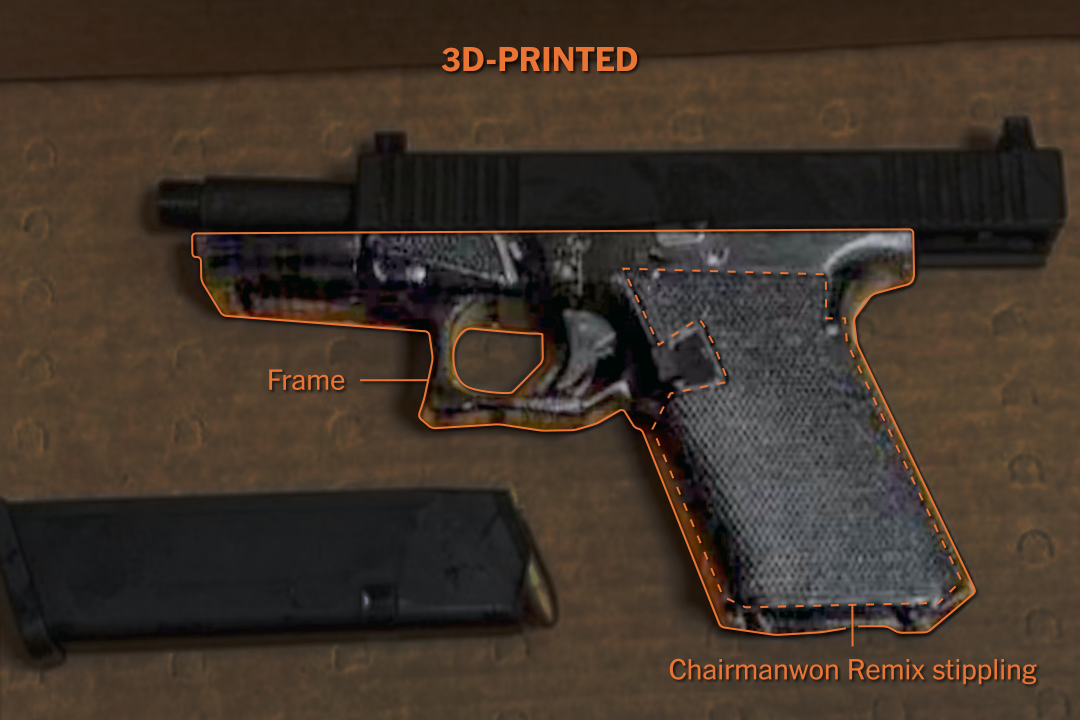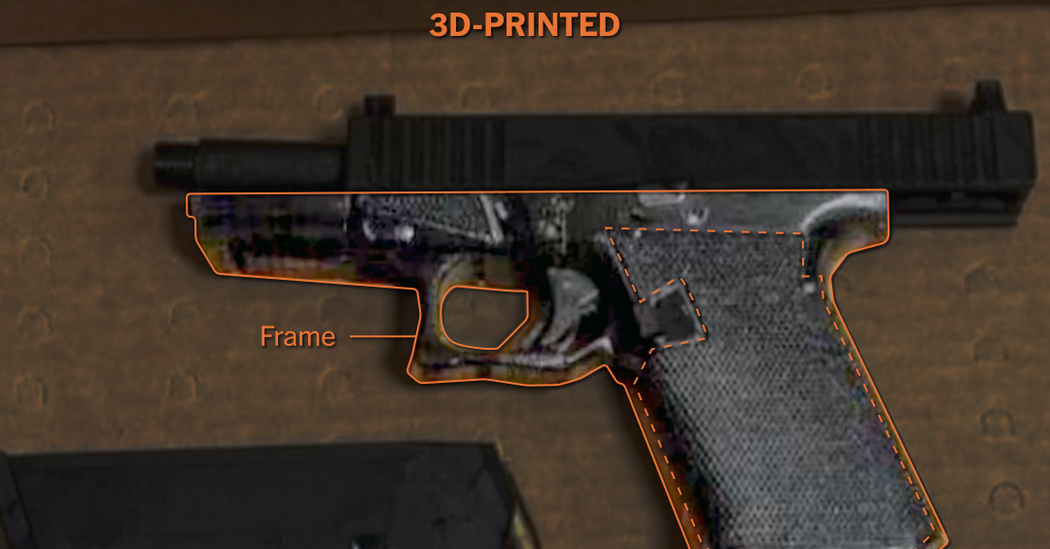At first glance, the gun in the police photographs — the one the authorities believe Luigi Mangione used to kill the chief executive of UnitedHealthcare — appears to be a Glock-19, a 9-millimeter semiautomatic pistol used by military forces, police officers, civilians and criminals all over the world.
But upon closer inspection, it is clear that the weapon was not factory-made, but was at least partially produced by a 3D printer. The giveaways are subtle: The Glock logo is absent from the pistol’s grip, where it would ordinarily be imprinted, and the angle of the grip is peculiar. Indentations on the grip, known as stippling, are patterned in such a way that the gun’s “fingerprint” can be directly linked to a unique free-to-download 3D-printed design known as the FMDA 19.2 Chairmanwon Remix.
A gun designer who contributed to the pistol’s design and asked to be identified only by his online pseudonym, Chairmanwon, because he does not want to be linked to the case, said he was shocked when he saw photographs of the pistol, which circulated worldwide on social media last weekend. Chairmanwon acknowledged in a post on X that the pistol was his design, but later deleted the post.

The pistol recovered from Luigi Mangione had both 3D-printed and metal components. The design was identified by its 3D-printed stippling, which designer Chairmanwon said was his only addition to an earlier design known as the FMDA DD 19.2.CreditCredit…Photograph from ABC News. Graphic by The New York Times.
Homemade firearms have existed for centuries, and fully 3D-printed firearms have been around since 2013, made and used largely by hobbyists in the United States. Laws governing homemade 3D-printed firearms vary by state. At the federal level, the Biden administration has proposed regulating components used in homemade guns as firearms. More than 25,000 privately made firearms were recovered in “domestic seizures” in 2022, according to the Department of Justice.
In some countries with strict gun laws, these 3D-printed weapons, which can be difficult to detect and trace, are being used increasingly in crimes, leaving law enforcement agencies struggling to stop their proliferation.

